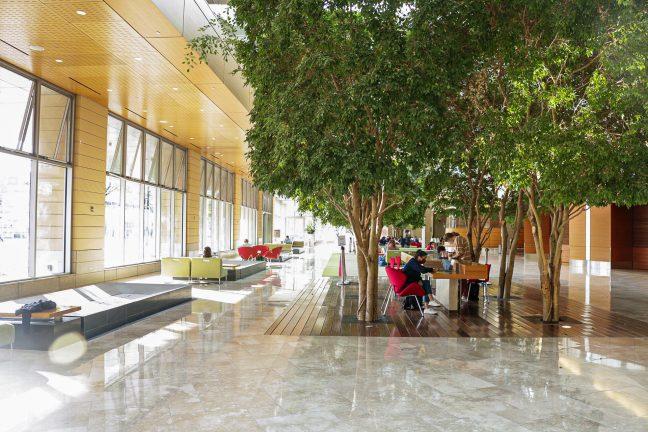The University of Wisconsin hosted a Faculty of Color Reception on Tuesday, Oct. 1, to welcome new faculty of color and celebrate both associate and full professor promotions.
Co-hosted by Vice Chancellor for Inclusive Excellence Dr. LaVar J. Charleston and University Committee Chair Dr. Li Chiao-Ping, the event took place at the DeLuca Forum in the Discovery Building from 5-7 p.m.
The Faculty of Color Reception has been hosted annually by the Division of Diversity, Equity & Educational Achievement since 2003, making this year its 22nd annual celebration.
According to its website, the DDEEA’s goals include increasing access for underrepresented minorities in STEM, eliminating the achievement gap between majority and underrepresented students and recruiting a more diverse faculty and staff.
Assistant professor of Educational Leadership and Policy Analysis Christopher Saldaña is one of many who have attended the event for multiple years and speak highly of its benefits for educational leaders of color.
“My experience has been it’s a great way for me to build community and to get to know other people of color,” Saldaña said. “It helped me build community and be celebrated.”
UW has made significant strides in diversifying its faculty across multiple departments.
In 2023, people of color made up a little over 21% of the faculty, according to the university’s 2023-2024 Data Digest.
Historically, the Cluster Hiring Initiative, which began in 1998, has contributed to the recent addition of multiple faculty of color. This initiative has authorized nearly 70 clusters, hiring faculty for programs across multiple disciplines, ranging from Quantum Science & Engineering to Native American Environment, Health and Community.
Other programs like the WISELI offer one and a half hour sessions for faculty search committees to learn how to recruit a diverse applicant pool.
UW also offers several fellowships and programs that support diversity, equity and inclusion.
The Hastie Fellowship aids underrepresented communities and lawyers of color to help them become law professors. Other programs, like the Anna Julia Cooper Postdoctoral Fellowship Program, provide professors with one year of salary for scholarly research without any instructional responsibilities.
Faculty have praised the university for its dedication to these goals, noting that it signals a strong commitment to creating an inclusive academic environment.
“The university has done an amazing job bringing in people with diverse experiences,” Saldaña said. “It shows we are serious about diversifying our faculty and providing students with new perspectives. We are making great strides, but there’s always more we can do…it’s about making sure everyone feels like they belong here and are supported as part of a team.”


